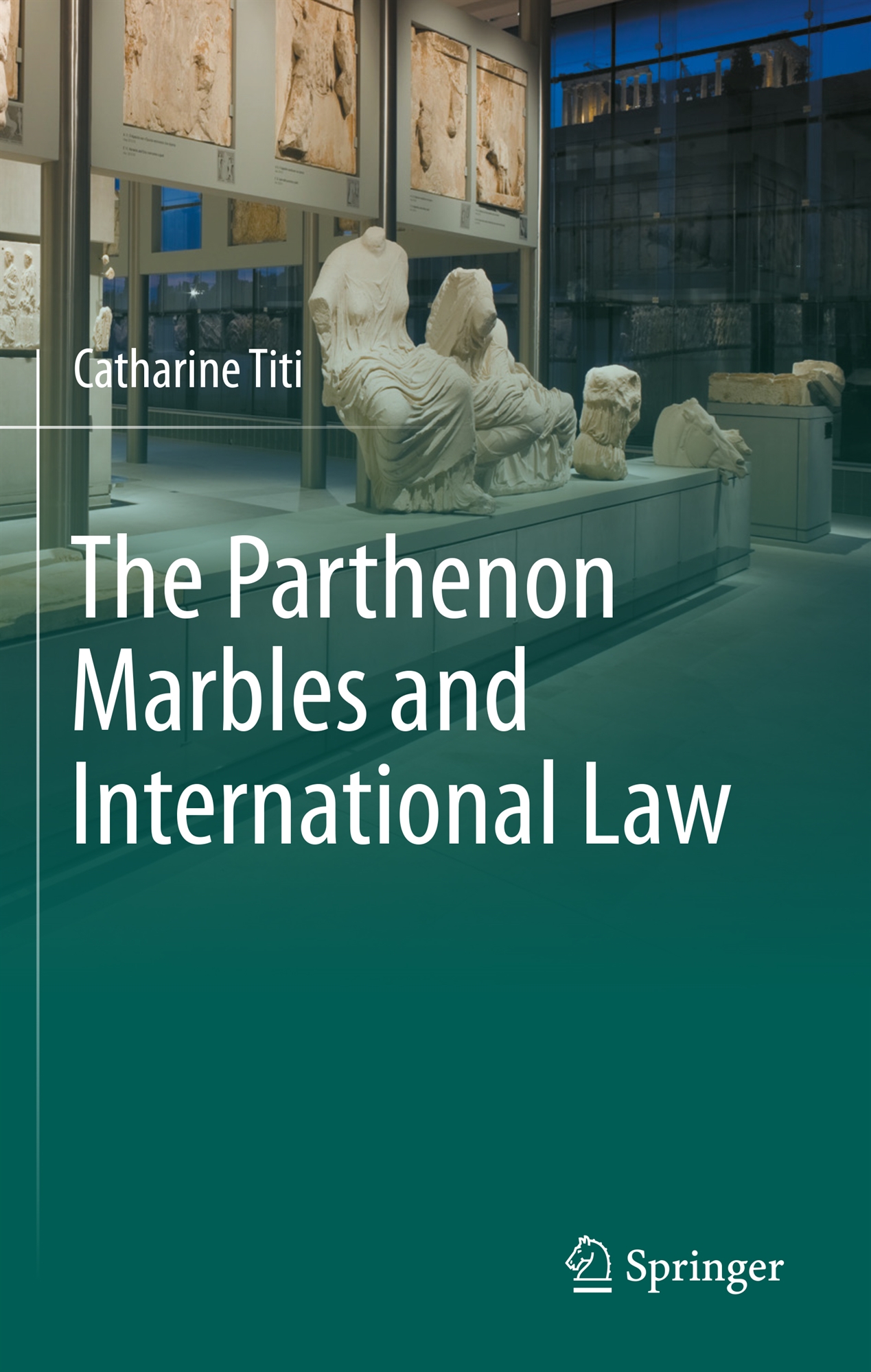
In her book “Marbles of the Parthenon and International Law”due out in May from Springer Publications, Catherine Titiassociate professor of law at the French National Center for Scientific Research (CNRS), approaching the lawsuit Sculptors of the Parthenon from the point of view of customary international law. Her story begins—where else—in Elgin. He recalls that the British ambassador did not have a valid document allowing the Sculptures to be unhooked, and the British government, when it decided to buy them, did not ask the opinion of the Ottoman authorities on the legality of the rejection. Elgin himself admitted to former Prime Minister Spencer Perceval that he had no right to acquire antiquities. And if all this is a thing of the past, then the changes that are taking place today at the international level in the issue of repatriation of antiquities offer Greece, emphasizes Katerina Titi, a solid legal basis.
– There are two. First, ownership of the Sculptures never passed to the British government and therefore to the British Museum. What has passed is possession, not property. And since there is no statute of limitations in international law, legally the Sculptures did not cease to belong to Athens. The second argument is that in recent years, customary international law has begun to change, now cultural heritage that has been illegally or even illegally exported must be returned to the place from which it was exported. Greece does not attach much importance to the legal argument, which is an important way of putting pressure on the return of Glyptos. In particular, the second argument, concerning the development of customary international law, was not used. My goal as an internationalist is to prove this development, which changes everything for the position of Greece.

– The fact that international law supports the return of the Marbles to Greece means that the Greek side can take the path of legal action, namely, to request the opinion of the International Court of Justice in The Hague. However, litigation is always risky. For now, negotiation is the best way to lay claim. In these negotiations, we must start using the legal argument. There is no hurry, because international law is changing in a direction that favors the position of Greece. What is needed is that Greece continue to lay claim to the Marble. This persistence means that the country is not in danger of losing its right even as time passes.
– As for the domino effect, then, firstly, it seems that the claims concern very few things. For example, London’s Victoria and Albert Museum, which houses 2.7 million items, has only submitted nine applications since 1999. Secondly, very few museum pieces match all the elements that, in the case of the Marbles, make their storage so problematic, such as the way they were taken, the fact that they are part of a monument, etc. Thirdly, and Perhaps most importantly, the return of Marbles will not lead to a domino effect. We already see that illegally confiscated items are being returned.
But the key issue is the issue of ownership. Apparently, it is possible to find a legal formula on the basis of which the British Museum can return the Sculptures to Greece indefinitely. But that doesn’t seem like the intention. Here we have two important questions. One of them is the legal formula. If Greece were to adopt the term “loan” or acknowledge ownership of the museum, this could legally be considered a waiver of its rights. Another question concerns the main content of the potential agreement. Greece wants to borrow Sculptures? At the moment, from what I have seen, the only offer of the British Museum is a favor or an exchange – we give you the Sculptures, you give us other antiquities as collateral. Is this what Greece is aiming for?
– The British government should pass a law on the return of the sculptures to Greece. The museum is bound by an obligation to return only indirectly, insofar as it is public, financed by the state and most of its members are appointed by it and accountable to it. The English county, in principle, does not allow him to turn marbles. However, there are exceptions to the rule. But the responsibility for the return lies primarily with the British government.
– The relevant provision has not yet entered into force. It is currently under development. When it comes into effect, the return of the Marbles will first require a decision from the British Museum to return them, which the Museum has not currently indicated willingness to do so. Secondly, because marbles are of great value, you will need a license from the Charity Commission, the Attorney General or a court. In any case, Marble must be returned not only for moral, but also for legal reasons. The entry into force of this provision will facilitate the return of the Marbles. However, the easiest way is to return them to the next British government, especially if it is a Labor government, as the current Conservative government has repeatedly opposed their return.

Source: Kathimerini
Ashley Bailey is a talented author and journalist known for her writing on trending topics. Currently working at 247 news reel, she brings readers fresh perspectives on current issues. With her well-researched and thought-provoking articles, she captures the zeitgeist and stays ahead of the latest trends. Ashley’s writing is a must-read for anyone interested in staying up-to-date with the latest developments.